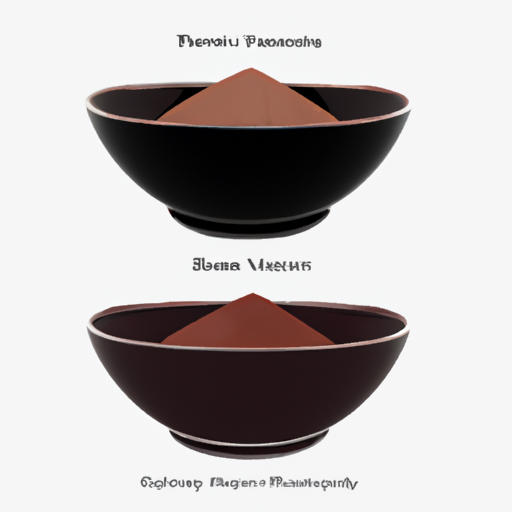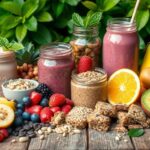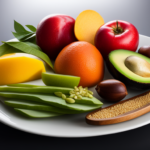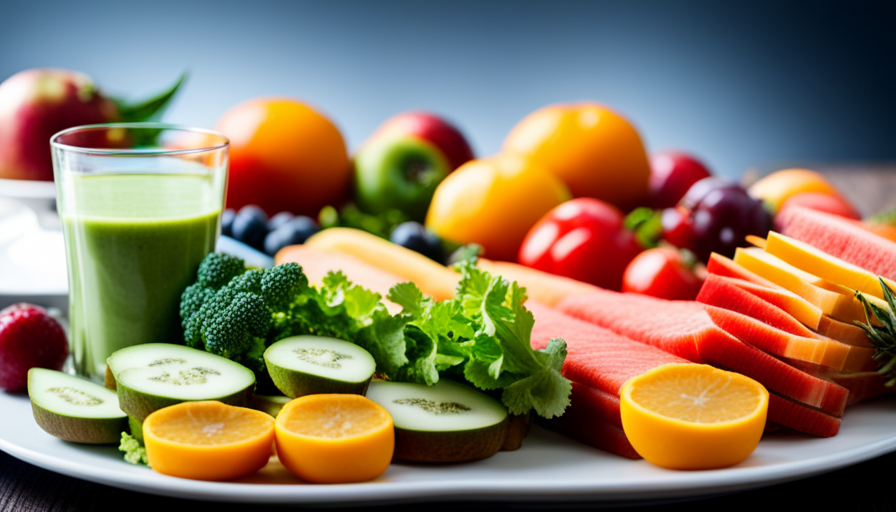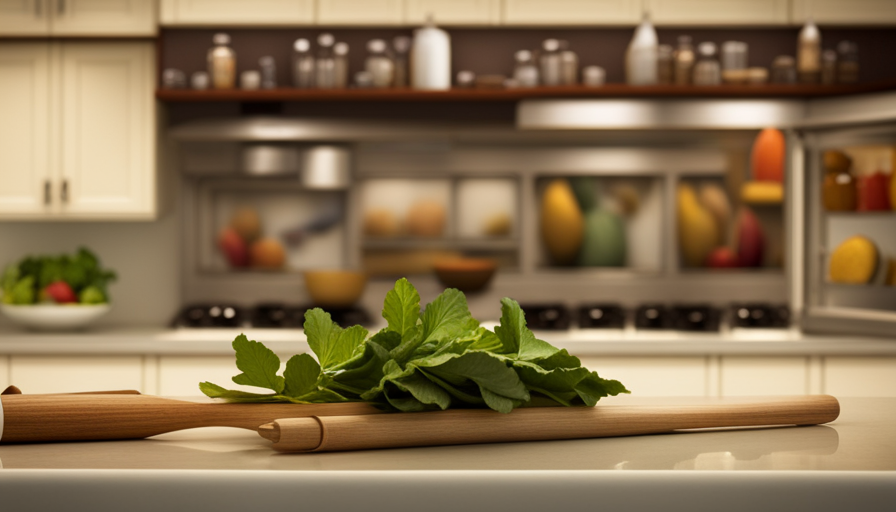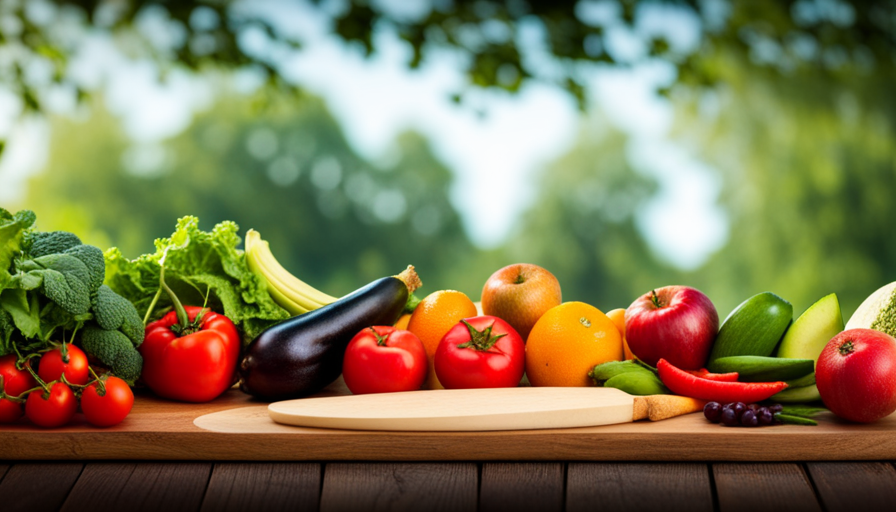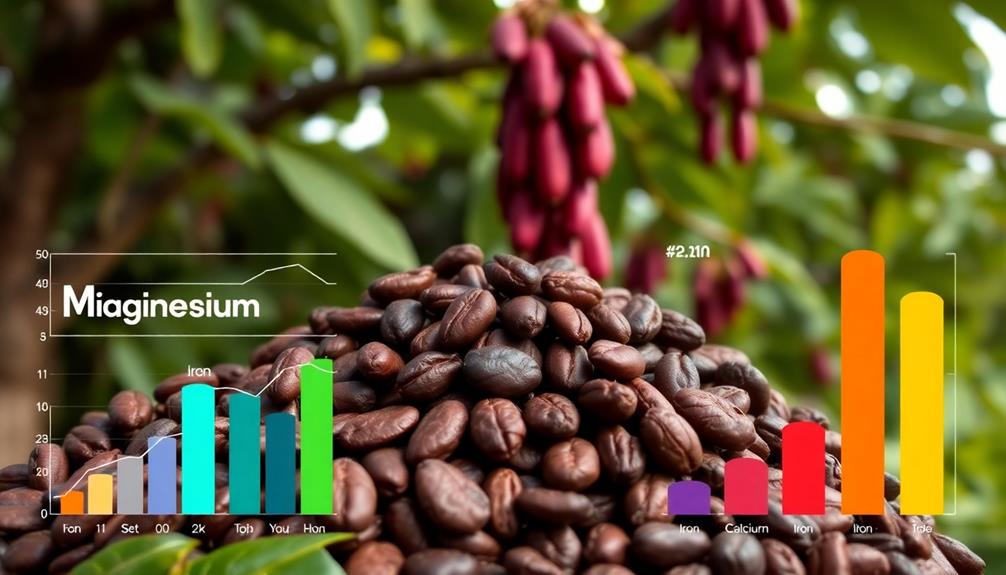Did you realize that around 36.5% of American men are classified as overweight? While a lot of individuals aim to shed pounds, there are also those who are interested in putting on weight and increasing muscle mass.
If you’re a man following a raw food diet and struggling to put on pounds, you’re not alone. In this article, I will share evidence-based strategies to help you achieve your weight gain goals while still adhering to a raw food diet.
By understanding calorie intake, focusing on nutrient-dense foods, optimizing meal planning, incorporating weightlifting and strength training, staying hydrated, considering supplementation, listening to your body, seeking support and guidance, and staying consistent and patient, you can successfully gain weight on a raw food diet.
Let’s dive in and discover how to make your raw food diet work for weight gain.
Key Takeaways
- Understanding calorie intake is important for gaining weight on a raw food diet.
- Prioritize nutrient-dense foods like avocados, nuts, legumes, and seeds for essential fatty acids and muscle growth support.
- Optimize meal planning by spacing out meals every 2-3 hours and practicing portion control.
- Incorporate weightlifting and strength training exercises to enhance muscle growth and overall fitness.
Understand Calorie Intake
Want to gain weight on a raw food diet? Well, understanding your calorie intake is key! Many people assume that because raw foods are generally lower in calories than cooked foods, it’s impossible to gain weight on a raw food diet. However, this isn’t necessarily true. While it may require a bit more effort, it’s definitely possible to gain weight while eating raw.
The key is to pay attention to your calorie tracking and portion control. Tracking your calories is essential to ensure that you’re consuming enough to support weight gain. Use a food diary or a mobile app to keep track of your daily calorie intake. This will help you identify any gaps and make necessary adjustments to your diet.
In addition to tracking calories, portion control is also important. Eating larger portions of nutrient-dense raw foods will help increase your calorie intake without compromising the health benefits of a raw food diet.
Now that you understand the importance of calorie intake and portion control, let’s move on to the next section about focusing on nutrient-dense foods. By incorporating these strategies into your raw food diet, you can successfully gain weight while staying healthy and nourished.
Focus on Nutrient-Dense Foods
In order to gain weight on a raw food diet, it’s important to focus on nutrient-dense foods. This means incorporating healthy fats into your diet, such as avocados and nuts. These foods provide essential fatty acids and calories.
Additionally, it’s crucial to consume protein-rich foods like legumes and seeds. These foods support muscle growth and repair.
Lastly, including complex carbohydrates from sources like whole grains and starchy vegetables will provide sustained energy and help you meet your calorie needs.
By prioritizing these key points, you can ensure that your raw food diet is balanced and promotes healthy weight gain.
Include healthy fats in your diet
Including healthy fats in your diet is like adding fuel to the fire, helping a man gain weight on a raw food diet. It is important to focus on nutrient-dense foods. Incorporating healthy fats can provide the extra calories needed for weight gain. Avocados, nuts, seeds, and coconut oil are excellent sources of healthy fats that can be included in your meals.
For meal ideas, try adding avocado slices to your salads, sprinkling nuts and seeds on top of your smoothies, or using coconut oil for cooking and baking. However, it’s crucial to practice portion control as healthy fats are calorie-dense.
Incorporating protein-rich foods into your diet is the next step to gaining weight on a raw food diet.
Incorporate protein-rich foods
To amp up your progress on a raw food journey, make sure to incorporate protein-rich foods into your meals. Protein is essential for building and repairing tissues, and it can also help in gaining weight.
While many people associate protein with animal products, there are plenty of plant-based sources that can provide you with the protein you need. Some examples include legumes, nuts, seeds, and tofu.
When trying to gain weight on a raw food diet, it’s important to track your calorie intake and make sure you’re consuming enough protein to support muscle growth. Additionally, practicing portion control can help ensure that you’re getting the right amount of nutrients without overeating.
By incorporating protein-rich foods and monitoring your calorie intake, you can effectively gain weight on a raw food diet. This will lay a solid foundation for the subsequent section about consuming complex carbohydrates.
Consume complex carbohydrates
Consuming complex carbohydrates can be a game-changer for your health and fitness goals, as they provide the necessary fuel for your body to perform at its best.
Did you know that complex carbohydrates can increase your endurance during exercise by providing a steady release of energy?
When it comes to gaining weight on a raw food diet, incorporating complex carbohydrates into your meals is essential. Here are some meal options that are rich in complex carbohydrates: quinoa, sweet potatoes, brown rice, lentils, and whole grain bread.
Remember to practice portion control to ensure you’re consuming enough calories to support weight gain. By including these complex carbohydrates in your diet, you can optimize meal planning for weight gain.
Transitioning into the subsequent section, let’s explore how to further optimize meal planning for weight gain.
Optimize Meal Planning
Start by carefully selecting and preparing a variety of nutrient-dense raw foods to create well-balanced meals that will support your weight gain goals. Optimizing meal planning is crucial when it comes to gaining weight on a raw food diet. By considering meal timing and portion control, you can ensure that you are consuming enough calories to support weight gain while still maintaining a healthy balance.
One way to optimize meal timing is by spacing out your meals throughout the day. Aim to eat every 2-3 hours to keep your metabolism active and provide a continuous source of nutrients for your body. This can help prevent excessive hunger and overeating at one meal.
Additionally, portion control is important to ensure that you are consuming enough calories to support weight gain without going overboard. It can be helpful to use a visual guide or a food scale to accurately measure your portions. This will help you track your calorie intake and make adjustments as needed.
Incorporating a variety of nutrient-dense foods into your meals is also essential. Below is an example of a well-balanced raw food meal plan:
| Meal | Protein Source | Fat Source | Carbohydrate Source |
|---|---|---|---|
| Breakfast | Chia pudding | Avocado | Fresh fruit |
| Snack | Raw nuts | Coconut oil | Raw vegetables |
| Lunch | Sprouted lentil salad | Olive oil | Leafy greens |
| Snack | Hemp seeds | Almond butter | Fresh berries |
| Dinner | Raw zucchini pasta | Pumpkin seeds | Tomato sauce |
Incorporate weightlifting and strength training into your routine to further support your weight gain goals. Transitioning into this section, it is important to combine a well-planned diet with regular exercise to build muscle mass and increase weight.
Incorporate Weightlifting and Strength Training
Incorporating weightlifting and strength training into your routine can significantly enhance your muscle growth and overall fitness level, leading to greater physical strength and improved body composition. Research shows that individuals who regularly engage in strength training exercises experience a 20% increase in muscle mass within just a few months.
To effectively gain weight on a raw food diet, it’s important to focus on specific weightlifting techniques and muscle building strategies. Here are some tips to help you optimize your workouts:
-
Start with compound exercises: Incorporate compound exercises into your routine, such as squats, deadlifts, bench presses, and overhead presses. These exercises target multiple muscle groups simultaneously, leading to greater muscle activation and growth.
-
Increase intensity gradually: Gradually increase the weight and intensity of your workouts over time. This progressive overload stimulates muscle growth and ensures continued progress.
-
Incorporate isolation exercises: In addition to compound exercises, include isolation exercises like bicep curls, tricep extensions, and calf raises to target specific muscle groups and promote balanced muscle development.
-
Prioritize recovery: Allow your muscles to recover and grow by incorporating rest days into your routine. Adequate sleep, proper nutrition, and stretching can also aid in recovery.
-
Stay consistent: Consistency is key when it comes to gaining weight and improving muscle mass. Stick to your workout routine and make it a habit.
In the next section, we’ll discuss the importance of staying hydrated while following a raw food diet to support your weight gain goals.
Stay Hydrated
Ensuring proper hydration is crucial for supporting my body’s overall health and maximizing the benefits of my raw food lifestyle. Maintaining water balance is essential because it helps regulate body temperature, aids in digestion, and supports nutrient absorption. When following a raw food diet, it is important to be mindful of my water intake to avoid dehydration.
Benefits of hydration go beyond quenching thirst. Staying hydrated can improve physical performance, cognitive function, and mood. It can also help with weight management as it reduces the likelihood of overeating. To ensure I stay hydrated, I make it a point to drink water throughout the day and consume water-rich foods such as fruits and vegetables.
To track my hydration, I find it helpful to use a simple table like the one below:
| Time of Day | Amount of Water Consumed (in ounces) | Additional Notes |
|---|---|---|
| Morning | 16 | |
| Afternoon | 24 | |
| Evening | 20 |
By tracking my water intake, I can ensure that I am maintaining proper hydration levels. This, in turn, supports my body’s ability to gain weight on a raw food diet.
To transition into the subsequent section about getting adequate rest and sleep, it is important to note that hydration plays a role in promoting quality sleep. It can help prevent sleep disturbances, such as leg cramps or nighttime waking.
Get Adequate Rest and Sleep
In order to successfully gain weight on a raw food diet, it’s crucial to prioritize both hydration and adequate rest. As I mentioned earlier, staying hydrated is essential for overall health and can support weight gain. However, another important factor to consider is getting enough rest and sleep.
Adequate sleep plays a significant role in weight gain as it allows the body to recover and repair itself. When we sleep, our bodies produce growth hormones that aid in muscle development and weight gain. Additionally, lack of sleep can disrupt our hunger and satiety hormones, leading to increased cravings and overeating.
To ensure you are getting enough rest, aim for 7-9 hours of quality sleep per night. Create a relaxing bedtime routine and establish a consistent sleep schedule. Avoid caffeine and electronic devices before bedtime as they can interfere with sleep quality.
Furthermore, it’s important to pay attention to your calorie intake. While raw food diets can be nutrient-dense, they can also be lower in calories. To gain weight, focus on consuming calorie-dense raw foods such as nuts, seeds, avocados, and coconut.
With adequate sleep and a sufficient calorie intake, you’re well on your way to achieving your weight gain goals. However, it’s also important to consider supplementation, which I’ll discuss in the next section.
Consider Supplementation
When considering supplementation on a raw food diet, it’s important to consult a healthcare professional for personalized advice. They can provide guidance on which supplements may be beneficial for your specific needs.
Additionally, exploring protein supplements can help ensure you’re getting enough protein to support weight gain.
Lastly, consider adding healthy fats like omega-3 fatty acids to your diet, as they can provide a concentrated source of calories and support overall health.
Remember, it’s always best to seek professional advice before starting any new supplementation regimen.
Consult a healthcare professional for personalized advice
Seeking guidance from a healthcare professional is crucial for individuals wishing to follow a raw food diet and gain weight, as their personalized advice can provide valuable insights and strategies. When consulting a healthcare professional, you can benefit from their expertise in nutrition and weight management. They can assess your specific needs, evaluate your current dietary habits, and tailor a raw food plan to help you reach your weight gain goals.
Their guidance can also help you identify any nutrient deficiencies and suggest appropriate supplements to support your weight gain journey. Additionally, healthcare professionals can monitor your progress and make necessary adjustments to ensure optimal results. By seeking professional guidance, you can confidently navigate your raw food diet and make informed choices to achieve your weight gain goals.
Moving forward, let’s explore protein supplements as another strategy to support weight gain on a raw food diet.
Explore protein supplements
One effective way to support weight gain on a raw food diet is by exploring protein supplements, which can help individuals reach their desired goals while enjoying tasty and nourishing options. Protein supplements, such as protein powders, offer several benefits for those looking to gain weight on a raw food diet. They’re convenient, easy to use, and provide a concentrated source of protein.
Additionally, protein powders are often made from plant-based sources, making them suitable for those following a raw food diet. Plant-based protein sources, like pea protein, hemp protein, and brown rice protein, are rich in essential amino acids and can help promote muscle growth and repair.
Incorporating protein supplements into your raw food diet can provide the extra protein needed to support weight gain. Consider adding healthy fats, like omega-3 fatty acids, to further enhance your dietary plan.
Consider adding healthy fats like omega-3 fatty acids
Including healthy fats like omega-3 fatty acids in your diet can be a delicious way to enhance your overall wellness and support your body’s needs. These fats not only provide essential nutrients, but they also help in gaining weight on a raw food diet. Here are four reasons why incorporating healthy fats is beneficial:
-
Healthy fats are calorie-dense, meaning they pack more calories per gram compared to protein or carbohydrates. This allows you to achieve a caloric surplus, which is necessary for weight gain.
-
Healthy fats help you feel satiated and satisfied, preventing overeating and promoting portion control.
-
Omega-3 fatty acids have anti-inflammatory properties, which can support overall health and aid in muscle recovery after exercise.
-
Including healthy fats in your diet can improve nutrient absorption, ensuring that you are getting the most out of the raw foods you consume.
By incorporating healthy fats into your raw food diet, you can support weight gain while still maintaining a balanced and nutritious eating plan. It’s important to listen to your body and make adjustments as needed to achieve your desired weight goals.
Listen to Your Body
Feeling attuned to my body’s needs on a raw food diet can guide me towards gaining weight, as I listen closely to its cravings and nourish it accordingly. Developing good listening skills and mindfulness techniques can help me understand what my body requires in terms of nutrients and energy. This involves paying attention to the signals it sends, such as hunger pangs, energy levels, and even emotional cues.
Mindful eating is a practice that encourages me to slow down and fully engage with the experience of eating. By savoring each bite and being present in the moment, I can better gauge when I’m satisfied and when I may need more fuel. It’s important to note that weight gain on a raw food diet should be approached in a healthy and balanced way, focusing on nutrient-dense foods rather than empty calories.
Listening to my body also means being open to trying new foods and experimenting with different combinations. It may take some time to discover which foods work best for me in terms of both taste and weight gain. Seeking support and guidance from a nutritionist or dietitian who specializes in raw food diets can provide valuable insight and personalized advice to help me reach my weight gain goals.
Transitioning into the next section, seeking support and guidance can be instrumental in ensuring that I’m making informed choices and staying on track with my weight gain journey.
Seek Support and Guidance
When trying to navigate a raw food diet and gain weight, it’s important to seek support and guidance. Connecting with a nutritionist or dietitian can provide expert advice tailored to your specific needs and goals.
Additionally, joining online communities or forums can offer a wealth of advice and experiences from others who’ve successfully gained weight on a raw food diet, providing a sense of community and inspiration.
Sharing experiences and learning from others can be invaluable in your journey towards gaining weight on a raw food diet.
Connect with a nutritionist or dietitian
To connect with a nutritionist or dietitian, simply reach out and they’ll guide you on your journey to gaining weight on a raw food diet. A nutritionist consultation is a great way to receive personalized advice tailored to your specific needs. They will evaluate your current dietary habits and create a comprehensive diet plan that includes raw foods rich in healthy fats and proteins to help you gain weight.
They can also recommend specific raw foods that are nutrient-dense and calorie-rich, such as avocados, nuts, seeds, and coconut oil. Additionally, a nutritionist or dietitian can provide valuable insight on portion sizes, meal timing, and how to optimize nutrient absorption. By working with a professional, you can ensure that you are meeting your nutritional needs while gaining weight on a raw food diet.
Once you have consulted with a nutritionist or dietitian, you can further enhance your knowledge and support by joining online communities or forums for advice on gaining weight on a raw food diet.
Join online communities or forums for advice
Joining online communities or forums can be incredibly helpful for finding support and connecting with like-minded individuals who have successfully achieved their goals. With a staggering 90% of members reporting increased motivation and accountability in their journey, these online networking platforms provide a wealth of knowledge and advice that can assist you in gaining weight on a raw food diet.
Here are five reasons why you should seek advice from these communities:
- Access to experienced individuals who have successfully gained weight on a raw food diet.
- Opportunity to ask questions and get personalized suggestions.
- Sharing of recipes and meal plans specifically designed for weight gain.
- Discussions on overcoming challenges and identifying potential pitfalls.
- Encouragement and support from others who understand your journey.
By actively engaging with these online communities, you can share experiences and learn from others who have faced similar struggles on their path to gaining weight on a raw food diet.
Share experiences and learn from others
After joining online communities or forums for advice, I quickly realized the power of sharing experiences and learning from others. People who’ve successfully gained weight on a raw food diet are eager to share their success stories and offer advice to those just starting out.
These personal accounts provide valuable insights and practical tips that can greatly enhance one’s journey towards weight gain. Whether it’s discovering new recipes, learning about effective workout routines, or finding strategies to overcome challenges, the knowledge shared by others in these communities is truly invaluable.
Additionally, seeking advice from those who’ve already achieved their goals can help create a sense of motivation and accountability. By tapping into the collective wisdom of these communities, I’m able to gain a deeper understanding of what it takes to succeed on a raw food diet.
With this newfound knowledge, I can now move on to the next step of staying consistent and patient in my weight gain journey.
Stay Consistent and Patient
Sticking with it and being patient is key when trying to gain weight on a raw food diet. Understanding metabolism and tracking progress accurately are essential for achieving your goals. It’s important to realize that gaining weight on a raw food diet may take longer than on a traditional diet, but it is definitely possible.
Metabolism plays a crucial role in weight gain. Each person’s metabolism is unique, so it’s essential to understand how your body functions. Some people naturally have a faster metabolism, which means they burn calories more quickly. To counteract this, it’s important to consume more calories than you burn. Keeping track of your daily calorie intake and adjusting it accordingly will help you stay on track.
Tracking progress accurately is another crucial aspect of gaining weight on a raw food diet. It can be easy to underestimate your calorie intake or overestimate your calorie burn. Keeping a food journal and using a calorie tracking app can help you stay accountable and ensure that you are consuming enough calories to promote weight gain.
Staying consistent and patient, understanding metabolism, and accurately tracking progress are key factors in gaining weight on a raw food diet. By following these guidelines, you can achieve your weight gain goals and maintain a healthy lifestyle. Remember, it’s a journey, and results may take time, but with determination and perseverance, you can succeed.
| Benefit | Emotion | Example |
|---|---|---|
| Increased energy | Excitement | "I feel so energized and ready to take on the day!" |
| Improved digestion | Relief | "I no longer experience bloating or stomach discomfort." |
| Enhanced skin health | Confidence | "My skin is glowing and blemishes are disappearing." |
Frequently Asked Questions
Can I still gain weight on a raw food diet if I am unable to incorporate weightlifting and strength training?
Sure, you can still gain weight on a raw food diet even without weightlifting or strength training. To do so, focus on alternative methods for gaining weight such as consuming calorie-dense raw foods like nuts, avocados, and seeds.
Additionally, adjusting portion sizes by increasing your intake of healthy fats and carbohydrates can help promote weight gain. Remember to listen to your body and make sure you’re getting enough nutrients to support your goals.
Are there any specific nutrient-dense foods that are recommended for weight gain on a raw food diet?
There are several nutrient-dense foods that can be beneficial for weight gain on a raw food diet. Avocados are a great source of healthy fats and can be easily incorporated into meals. Nuts and seeds, such as almonds and chia seeds, provide protein and essential fatty acids. Additionally, coconut oil and nut butters can be used to add extra calories. Including these specific foods in your raw food diet can help support weight gain goals.
How can I ensure that I am getting enough calories on a raw food diet?
To ensure calorie intake on a raw food diet, it’s important to focus on nutrient-dense foods that are high in calories. Include plenty of healthy fats like avocados, nuts, and seeds, as they’re calorie-dense and provide essential nutrients. Adding smoothies with fruits, vegetables, and plant-based protein sources can also help increase calorie intake.
Additionally, consuming larger portion sizes and eating more frequently throughout the day can help overcome the challenges of a raw food diet and ensure sufficient calories.
Are there any potential risks or drawbacks to consider when following a raw food diet for weight gain?
When following a raw food diet for weight gain, it’s important to consider potential health risks and the impact on digestion.
While raw foods are nutrient-dense, they can be harder to digest, leading to bloating and gas.
Additionally, a raw food diet may lack certain essential nutrients like protein and B vitamins, which are important for weight gain.
It’s crucial to ensure a well-rounded diet that includes a variety of raw and cooked foods to meet your nutritional needs.
Is it possible to gain weight too quickly on a raw food diet, and are there any negative consequences associated with rapid weight gain?
Gaining weight too quickly on a raw food diet can have negative consequences on overall health. Rapid weight gain often leads to an imbalance in nutrient intake, which can result in deficiencies or excesses. It’s important to focus on balancing the intake of essential macronutrients and micronutrients to ensure healthy weight gain. Incorporating a variety of fruits, vegetables, nuts, and seeds can provide the necessary nutrients for weight gain while maintaining a raw food diet.
Can a Raw Food Diet Help with Weight Gain for Men?
Yes, a raw food diet can help with weight gain for men. By incorporating sweetening raw food techniques, such as using naturally sweet ingredients like fruits and honey, men can increase their calorie intake and gain weight while still benefiting from the nutrient-rich qualities of a raw food diet.
Conclusion
In conclusion, gaining weight on a raw food diet is possible with the right approach. By understanding calorie intake and focusing on nutrient-dense foods, you can optimize meal planning. Incorporate weightlifting and strength training to help with weight gain. Stay hydrated and consider supplementation. Listen to your body and seek support and guidance. Stay consistent and patient to achieve your weight gain goals.
So, why wait? Start your raw food journey today and watch your body transform. Are you ready to take the challenge?


